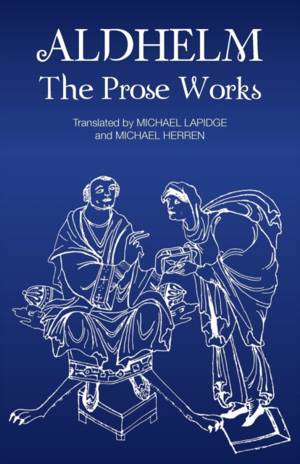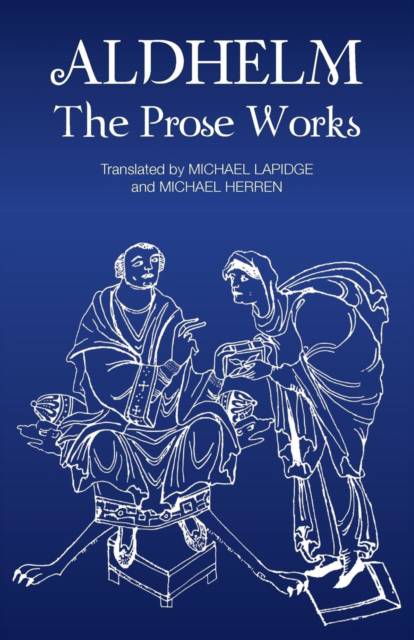
Bedankt voor het vertrouwen het afgelopen jaar! Om jou te bedanken bieden we GRATIS verzending (in België) aan op alles gedurende de hele maand januari.
- Afhalen na 1 uur in een winkel met voorraad
- In januari gratis thuislevering in België
- Ruim aanbod met 7 miljoen producten
Bedankt voor het vertrouwen het afgelopen jaar! Om jou te bedanken bieden we GRATIS verzending (in België) aan op alles gedurende de hele maand januari.
- Afhalen na 1 uur in een winkel met voorraad
- In januari gratis thuislevering in België
- Ruim aanbod met 7 miljoen producten
Zoeken
Omschrijving
Aldhelm, born c.640 in Wessex, and becoming abbot of Malmesbury and later bishop of Sherborne, was the first English man of letters; up to 1100, his prose writings were the most widely read of any Latin literature produced in Anglo-Saxon England. His surviving prose works include a long treatise 'De virginitate', and a number of letters; these in particular are an important source of knowledge concerning Anglo-Saxon England. The treatise, a lengthy exhortation on virtue addressed to nuns at Barking Abbey, is a fascinating series of 'exempla' drawn from the prodigious range of Aldhelm's knowledge of patristic literature, and tailored to the expectations of a seventh-century Anglo-Saxon female audience. Because of the extreme difficulty of his Latin, however, Aldhelm's prose works have rarely been read, and have never been adequately appreciated - which this translation seeks to remedy. It is accompanied with an introduction outlining Aldhelm's central importance to Anglo-Saxon literary culture; a critical biography which throws new light on what has previously been assumed about him; and an essay establishing an accurate canon and chronology of his writings.
Specificaties
Betrokkenen
- Auteur(s):
- Vertaler(s):
- Uitgeverij:
Inhoud
- Aantal bladzijden:
- 224
- Taal:
- Engels
Eigenschappen
- Productcode (EAN):
- 9781843841999
- Verschijningsdatum:
- 17/09/2009
- Uitvoering:
- Paperback
- Formaat:
- Trade paperback (VS)
- Afmetingen:
- 140 mm x 216 mm
- Gewicht:
- 290 g

Alleen bij Standaard Boekhandel
+ 119 punten op je klantenkaart van Standaard Boekhandel
Beoordelingen
We publiceren alleen reviews die voldoen aan de voorwaarden voor reviews. Bekijk onze voorwaarden voor reviews.









